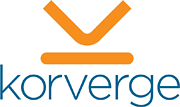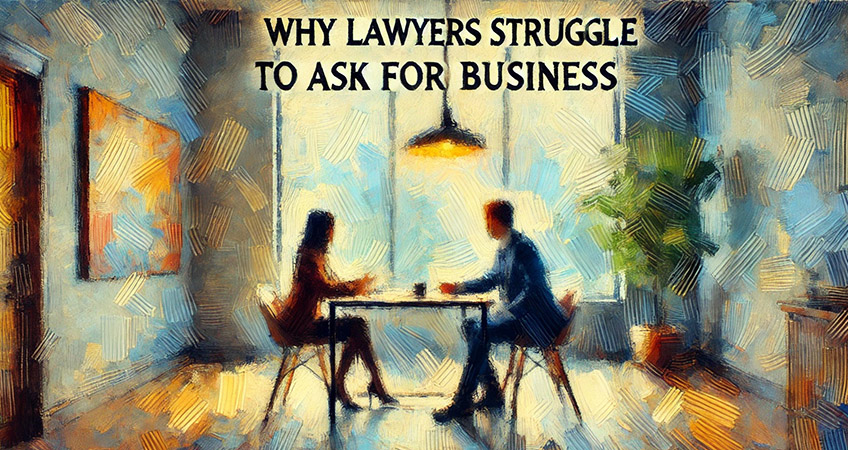For many lawyers, the hardest part of business development (BD) isn’t networking, writing articles, or giving presentations – it’s asking for the work. Despite being persuasive in court or negotiations, many lawyers hesitate when it comes to saying, “I’d love to work with you.”
If that sounds familiar, you’re not alone. In my years of BD coaching, I’ve seen this concern come up repeatedly. Lawyers want to know how to ask without sounding pushy. My answer is always the same: it has to sound natural, and it has to happen at the right time. Ask too soon, and you risk turning the prospective client off. The key is to build rapport first.
Why Lawyers Struggle to Ask for Work
One of the biggest barriers is fear of rejection. No one enjoys hearing “no,” and lawyers – often high achievers – are especially averse to it. There’s also the belief that good work should speak for itself. Many assume that if they deliver great results, referrals and new clients will just come. While reputation matters, clients and contacts often need a nudge.
In addition, talking about their own value can feel unnatural. Add to that the worry about coming across as overly aggressive.
I touched on this in my February 2025 2-minute read, “Why Your Clients Don’t Refer You (And How to Change That”).
How to Get Over It and Start Asking
First, shift your mindset. Instead of thinking, “I need this business”, reframe it as: “this prospective client would benefit from my help”. If you truly believe in the value you bring, it’s your responsibility to let people know how you can assist them. You’re not imposing – you’re offering a solution to a problem they may already have.
Second, timing is everything. In my coaching sessions, I emphasize that asking for work has to be a natural progression. Pushing too early can make a prospect uncomfortable. Build rapport first – engage in meaningful conversations, show you understand their business and challenges, and let trust develop. When the timing feels right, the ask won’t feel forced; it will feel like the next logical step.
BD isn’t about delivering a perfect sales pitch at the first opportunity. It’s about positioning yourself so that when the need arises, you’re the obvious choice. That means staying in touch, demonstrating value, and fostering relationships over time. When a client expresses a challenge or concern, that’s often the perfect moment to say, “I’d be happy to help with that.”
Finally, following up plays a crucial role in the process – and I’ll explore this in more detail in my next 2-minute read. If a conversation was promising but hasn’t led anywhere yet, checking in with a simple, natural message can keep the door open. Done the right way, BD doesn’t feel like selling – it feels like helping. And that’s exactly what great lawyers do.
If you are a lawyer aiming to strategically enhance your business development, I’m available to help. Let’s arrange a complimentary discussion to explore how coaching might aid your progress and address any queries you might have. Please reach out to me at larry.stroud@korverge.com to schedule a time.
I do ‘Business Development’ coaching. Not life coaching. Not career coaching. The coaching is specifically tailored to business development in the legal profession. My focus is on helping lawyers build and retain client relationships, as well as winning new clients.
I have been a partner at two international firms and have dedicated the past 20 years to coaching individual lawyers in business development.
My clients range from lawyers in national and international law firms to those in regional, small office, and specialized boutique firms, as well as solo practitioners. Based in Toronto, I work with clients throughout Canada, having also worked in several other countries. I’m typically engaged either by individual lawyers or firms on a retainer basis to provide ongoing coaching for their lawyers at various stages of their careers, and in certain cases, to lead targeted workshops.

